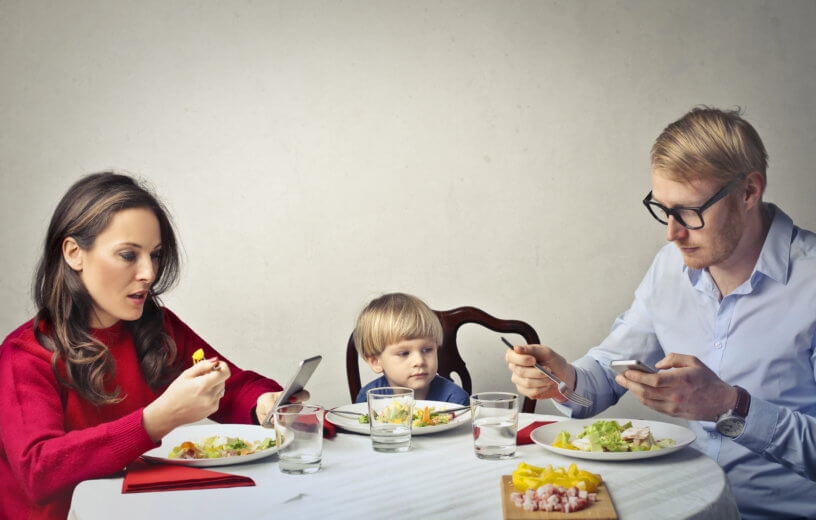URBANA, Ill. — One of the most cherished memories many kids likely have while growing up is eating dinner with their family. Unfortunately, a poor work-life balance from job stress or an overbearing work schedule can make it difficult for parents to eat at the same time as their children. According to a new study, continued stress from work and being absent at mealtimes could harm a child’s development.
“We all struggle to maintain the balance between work life and family life. But this might be especially challenging for parents, who are engaging in childcare after a busy and stressful day at work. And when it comes to co-parenting in dual-earner families, which comprises 65% of families with children in United States, we do not know much about how mothers and fathers share caregiving roles under work stress,” says Sehyun Ju, a doctoral student in the department of Human Development and Family Studies in the College of Agricultural, Consumer and Environmental Sciences at the University of Illinois Urbana-Champaign.
The study authors monitored the development of children from 1,400 heterosexual families where both parents were earning an income. Children were followed from nine months to kindergarten and researchers examined whether they grew up with regular family dinners, parents with high levels of job stress, and parents with financial worries.

Children of parents with high work-related stress when they were two years-old showed lower socioemotional competency at four to five years-old. The effect on children’s development depended on whether it was the mother or father with high work-related stress.
Mothers with high job dissatisfaction were more likely to make it to family dinners, but it still resulted in low socioemotional competency. Stressed-out fathers, however, were less likely to make it to dinners which resulted in their children having less socioemotional competency at the age of four or five.
“Even when the mother increased her mealtime presence to compensate for the father’s absence, the child’s socioemotional development was still negatively impacted. This indicates fathers may have a unique influence that cannot be replaced by the mother. Future intervention programs should help both parents obtain a better balance between work and family, and highlight the importance of family routines to promote healthy child development,” explains Qiujie Gong, a doctoral student at the University of Illinois Urbana-Champaign, in a media release.
The findings also show the influence of traditional gender roles. As mothers are typically considered the primary caregivers, they have a higher standard to meet in taking care of their children. This includes being more present with children and feeding them, as seen in still showing up for family dinners even though it was not expected as much from fathers.
Of course, there are other factors that could be affecting parents from being present at dinner. This includes whether parents have a more dire financial situation that forces them to work longer hours or night shifts.
“For example, dinner time for young kids is typically around five or six o’clock, but the expectation that parents are home early in the day doesn’t align with being an ideal worker. Policy initiatives to help provide a work environment and community support that facilitate family mealtimes would be important,” concludes Karen Kramer, an associate professor at the University of Illinois Urbana-Champaign.
The study is published in the Journal of Family Psychology.
You might also be interested in:
- ‘Family dinner’ a thing of the past? Average person spends just 3 meals a week with loved ones
- Putting it all together: Jigsaw puzzles serve as strong child development marker
- Modern family: 6 in 10 parents TEXT their kids when dinner is ready, instead of yelling

Lea la versión en español en EstudioRevela.com: Las agendas ocupadas de trabajo y los padres que no cenan con sus hijos pueden dañar el desarrollo emocional de los niños.
